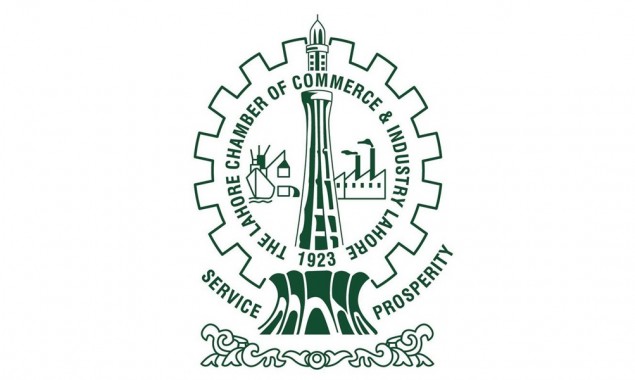
LCCI Photo: File
LAHORE: The Lahore Chamber of Commerce and Industry (LCCI) has stressed the need for measures to control inflation and stabilise the exchange rate for providing some relief to the business community.
LCCI president Mian Nauman Kabir, who was heading a delegation, gave various suggestions to President Dr Arif Alvi for resolving the issues being faced by the trade and industry.
LCCI senior vice president Mian Rehman Aziz Chan, vice president Haris Ateeq and the Executive Committee members were part of the delegation.
Dr Arif Alvi said that the government is committed to provide a competitive and fair business environment to the entrepreneurs and has taken a number of steps in this regard.
Despite limited resources, the government has provided maximum relief to the business community and vulnerable segments of the society during the Covid-19 pandemic, he said and urged the LCCI to play its role in encouraging businessmen to pay taxes so as to reduce the budget deficit and allocation of more funds for the development works.
Kabir said that the rupee depreciation has resulted in an exorbitant increase in the cost of production. He suggested curtailing imports of non-essential and luxury items and the State Bank of Pakistan (SBP) interventions to control the exchange rate.
The government should work on currency swap with China and focus on a concrete strategy of import substitution and enhancing exports, he said, adding that the issue of rising inflation needed attention of the government.
The inflation rate for October stood at more than 9 per cent. The persistent rise in inflation has increased the cost of doing business/production. The main causes of inflation were the exchange rate depreciation, increase in global crude oil prices, over reliance on imported commodities/raw materials/machinery/oil and increase in the electricity tariff.
Kabir also suggested increasing energy generation through renewable sources to decrease reliance on imported oil. An increased reliance on public transport through a proper policy framework would also help curtail oil imports.
At the same time, the provincial governments should strengthen their price mechanism to control food inflation. Strict and indiscriminate actions should be taken against all those involved in illegal profiteering and hoarding, he added.
The LCCI president said the issue of a steep rise in the trade deficit needed urgent attention from the government. In the first four months of the current financial year (July-October 2021), the trade deficit stood at more than $15 billion, which was 105 per cent higher, compared with the trade deficit in the same period of the last year. This recent increase in the trade deficit has played a part in the rupee depreciation.
Pakistan’s exports were heavily concentrated in a few product lines, as textiles, rice and leather account for almost 70 per cent of exports.
He suggested diversifying exports, especially focusing on potential sectors such as pharmaceuticals, engineering and halal food. These potential sectors should be completely zero-rated for increasing export competitiveness, he said, adding that there was a need for collective actions for exploring new export markets, as around 65 per cent of Pakistan’s exports go to just 10 countries.
For enhancing exports to untapped potential markets such as Africa, Russia and Central Asia, formal banking channels should be established on a priority basis, the LCCI chief said.
Pakistan has been neglecting regional trade for a long time. According to the State Bank of Pakistan statistics, exports to South and Central Asia (Afghanistan, Bangladesh, India, Iran, Sri Lanka) stood at $1.99 billion in 2020/21, which were merely around 8 per cent of the total exports. There should be a separate policy for promoting regional trade, he added.
Kabir said that the decision to increase the policy rate by 150 basis points would adversely affect the economic growth rate. It would hinder the process of industrialisation and the private sector growth, he said, adding that Pakistan should bring interest rates at par with the regional rates (India 4 per cent; Bangladesh 4.75 per cent; China 3.85 per cent; and Sri Lanka 5 per cent).
The Federal Board of Revenue (FBR) has allowed its officers to forcefully recover taxes from the bank accounts of the taxpayers without seeking approval of the chairman and intimation to the CEO/owner of the company.
Actions like bank attachment would be a big hindrance in the creation of a business-friendly atmosphere, he said, adding that such discretionary powers should be withdrawn.
He also said that the credit available to the private sector was only 17 per cent of GDP, the lowest in the region. The Small and Medium Enterprises (SMEs) only get 6 per cent of the private sector credit, while the number of SME borrowers was just around 163,000.
In the recently approved SME Policy 2021, the government has planned the provision of collateral-free loans of up to Rs10 million, he said and expressed the hope that the government would ensure implementation of this initiative.
The government has reduced import duties on many raw materials in the last couple of years and also in this budget.
“We hope that this process will continue and all the raw materials not manufactured locally will be declared zero-rated through the elimination of regulatory and Customs duties,” he said.
Read More News On
Catch all the Business News, Breaking News Event and Latest News Updates on The BOL News
Download The BOL News App to get the Daily News Update & Follow us on Google News.




